-

The much awaited request for proposal (RFP) for 126 medium-range multi-role combat aircraft (MMRCA) was finally announced by the Ministry of Defence in a press release on 28 August 2007. It took nearly two years of deliberations since the request for information (RFI) was issued in late 2005. Six bidders, considered ‘gorillas’ in military business, will compete for the massive $ 10.2 billion contract, dubbed as ‘mother of all deals’ in the history of Indian arms acquisition.
-
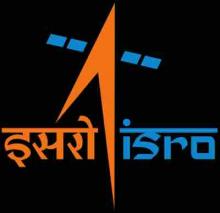
Despite more than three decades of international restriction on technology regime, India’s space program has successfully launched INSAT 4CR satellite early this month. The satellite has life span of ten years and it carries 12 high-power Ku-band transponders for direct-to-home television services, facilitate video picture transmission and digital satellite news gathering. The success of this test is very important particularly when viewed at the background of last year’s failure.
-

The involvement of a number of Indians in the foiled UK terror plots of early July this year rang alarm bells in India. Are Indian Muslims being lured into al-Qaida's global jihad? Britons of Indian origin have been tied to al-Qaida in the past, including the Muslim convert Dhiren Barot and Haroon Aswat, the alleged mastermind of the 21/7 bomb attacks. Unlike these Qaida predecessors, Kafeel Ahmed, one of the Glasgow car bombers, was born and raised in large part in India, in the booming hi-tech city of Bangalore.
-
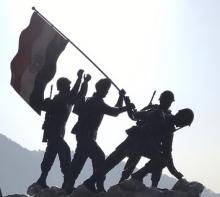
While India is known for its disciplined armed forces, numbers of stress-related deaths in the form of suicide and fragging have been increasing in recent years, especially in troubled states of Jammu and Kashmir (J&K) and Northeast India. Apart from tackling terrorism, escalation of fragging and suicides in such sensitive regions provide additional threats to national security. It also affects the morale of young aspirants and distracts them from pursuing it as a career option.
-

India’s forest land, rich in natural resources like forest derivatives and minerals, is undoubtedly the cauldron of various degrees of conflict. From civil wars in Chhattisgarh to armed conflict in the East, it has created internal security more volatile than ever before in India. The Union Ministry of Home Affairs has a special wing to neutralise this ‘internal security’ with solid policing. The growing number of conflicts in the forest area have threatened the forest resources and the livelihood of inhabitants.
-
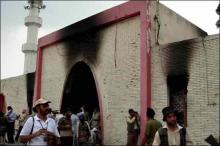
The fall of the Red Mosque (Lal Masjid) has indeed heralded a new era in Pakistan marked by conflict between moderate and fundamentalist forces.
-

The docking of the USS Nimitz in Chennai port has challenged India’s independent foreign policy and its long-lasting tradition against imperialism, colonialism, and superpower hegemony. Supporters of Nimitz’s brief visit who praise it as a testimony to the bourgeoning Indo-US strategic relationship should acknowledge the long-drawn coercive history of the Nimitz nuclear ship and the use of ‘gunboat diplomacy’ to restore US imperialistic interests.
-

One of the most dreaded terrorist groups in Southeast Asia, Jemaah Islamiyah (JI) is presently facing a leadership crisis. The arrest of two of its most prominent leaders, Abu Dujana and Zarkasih (also known as Yusron Mahmudi and Abu Irsyad respectively) has jeopardized JI’s future plans in the region. Of late, JI has faced the wrath of the anti-terrorist initiatives by the Indonesian government duly supported by other Southeast Asian neighbours as well as Australia.
-
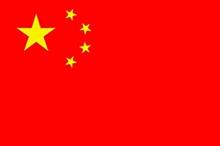
The fundamental cultural influences [mentioned in the first part of the article, “Negotiating with China-I”, Article No:120, June 14, 2007] have left their imprint on the Chinese negotiating style. Scholars like John Graham and Mark Lam (The Chinese Negotiation, Harvard Business Review, October 2003) have identified and defined a set of eight elements that one would have to contend with when dealing with the Chinese.
-
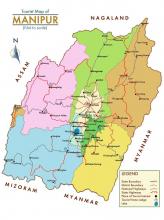
Contesting claims over territorial supremacy by rival insurgent groups have not only resulted in a violent conflict between the insurgents’ themselves but, it also has the potential to generate misunderstanding between communities they claim to represent. This is exactly the present state of affairs in India’s northeastern state of Manipur where several such groups have turned this beautiful land into their fiefdom.
Paxton ported to drupal by DropThemes.in